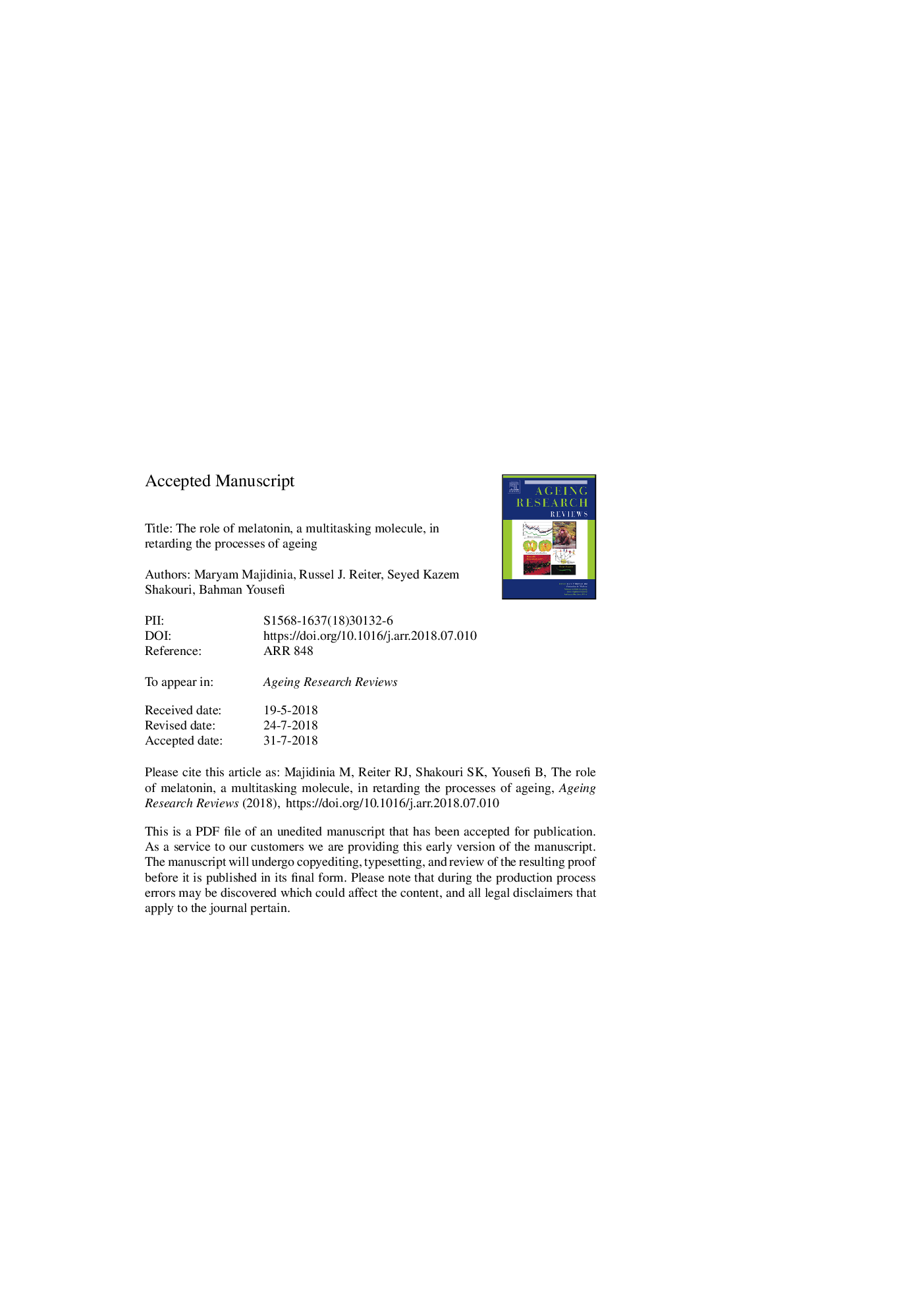| Article ID | Journal | Published Year | Pages | File Type |
|---|---|---|---|---|
| 9953992 | Ageing Research Reviews | 2018 | 62 Pages |
Abstract
Biological ageing is generally accompanied by a gradual loss of cellular functions and physiological integrity of organ systems, the consequential enhancement of vulnerability, senescence and finally death. Mechanisms which underlie ageing are primarily attributed to an array of diverse but related factors including free radical-induced damage, dysfunction of mitochondria, disruption of circadian rhythms, inflammaging, genomic instability, telomere attrition, loss of proteostasis, deregulated sensing of nutrients, epigenetic alterations, altered intercellular communication, and decreased capacity for tissue repair. Melatonin, a prime regulator of human chronobiological and endocrine physiology, is highly reputed as an antioxidant, immunomodulatory, antiproliferative, oncostatic, and endocrine-modulatory molecule. Interestingly, several recent reports support melatonin as an anti-ageing agent whose multifaceted functions may lessen the consequences of ageing. This review depicts four categories of melatonin's protective effects on ageing-induced molecular and structural alterations. We also summarize recent findings related to the function of melatonin during ageing in various tissues and organs.
Keywords
Related Topics
Life Sciences
Biochemistry, Genetics and Molecular Biology
Ageing
Authors
Maryam Majidinia, Russel J. Reiter, Seyed Kazem Shakouri, Bahman Yousefi,
